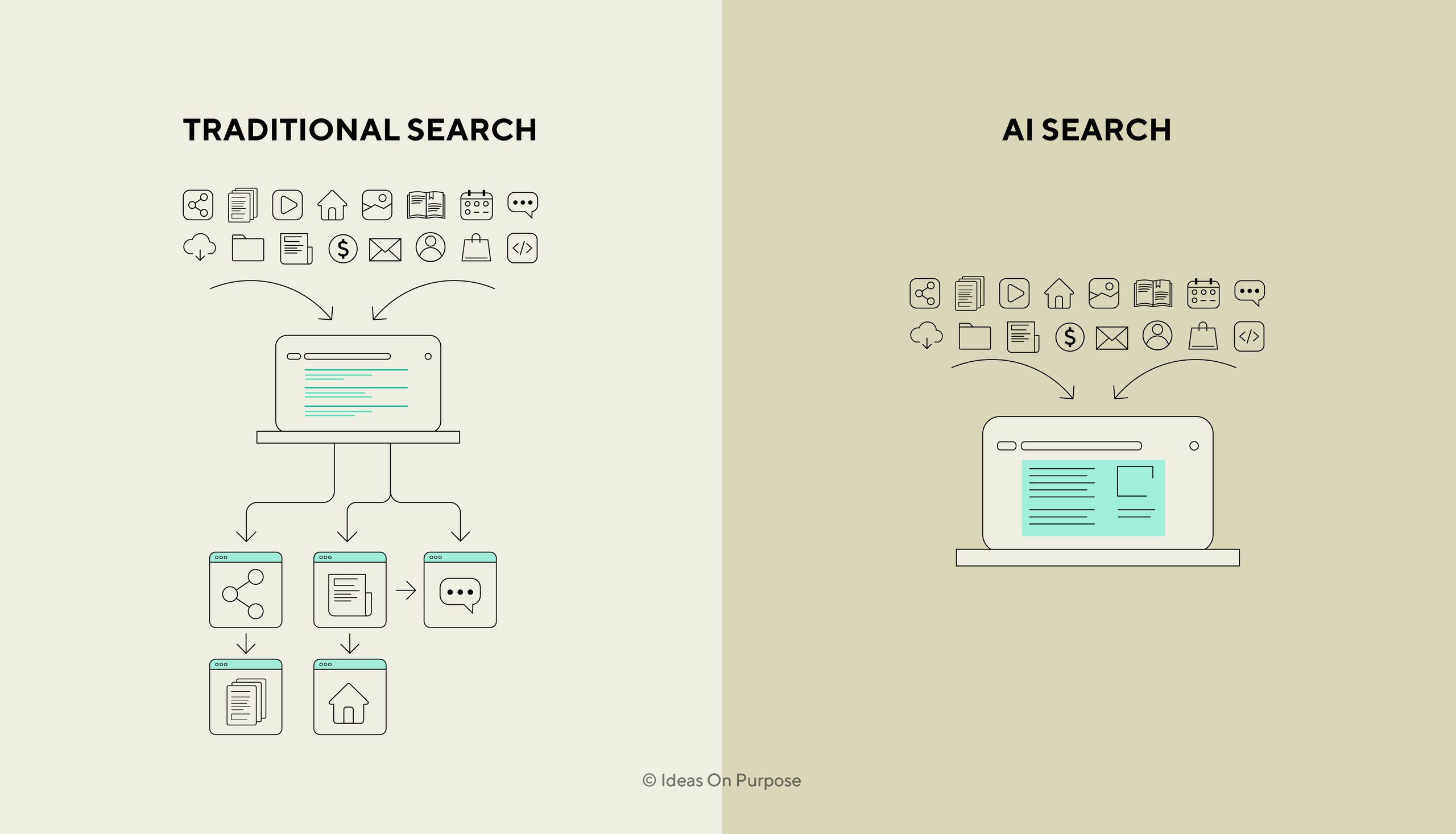AI Search Changes Everything, and What You Can Do About It
When someone searches for your organization, sustainability practices, or company position on key issues, what do they find? What story does AI tell?
More and more people are using large language models like Perplexity, Claude, Gemini, Chat GPT and Grok for AI-powered search. And now, even when using Google, they are getting an AI response. Google’s AI Overviews, and all AI search, don’t just return a list of links, they synthesize information from multiple sources into a single, comprehensive answer. With fewer people clicking through to websites, the critical question becomes: Is that answer based on your content, or someone else’s interpretation of your story? In other words, is AI part of your audience strategy?
Andreessen Horowitz recently highlighted how companies need to shift from optimizing for search engine rankings to optimizing for AI comprehension and citation. (They call it GEO— Generative Engine Optimization.) Even though this concept is in the early stages, this shift is certainly coming and requires a fundamental rethinking of how we structure and present information online. We need to balance for human visitors, but AI is here to stay as an important audience.

What AI Systems Actually Want
Generative AI systems prioritize different signals than traditional search algorithms. They seek:
- Comprehensive, authoritative content that covers topics thoroughly rather than surface-level keyword optimization. Your sustainability section shouldn’t just list initiatives—it should explain your approach, methodology, and progress with depth and context.
- Clear information architecture that helps AI understand relationships between concepts. For example, when you explain your company’s climate or stewardship commitments, the AI should easily connect your goals, timeline, and specific actions.
- Transparent, well-sourced claims backed by data and third-party validation. As we discussed in How to Tell a Story with Data, combining metrics with narrative context creates more compelling and trustworthy content.
BUT: you need to balance for human audiences, with well written, informative text, infographics, and facts.
Practical Steps for Corporate Websites
Audit your expertise gaps. Where are external sources defining your company’s story? Industry publications, analyst reports, and news articles often become the default sources for AI-generated summaries. Fill these information voids with authoritative content on your own site.
Structure content for AI comprehension. Use clear headings, logical flow, and descriptive section titles. Web accessibility best practices align with AI needs. And, when discussing complex topics like ESG initiatives or market positioning, break information into digestible segments that AI can easily parse and reference.
Create definitive resource pages. Develop comprehensive sections that position your website as the go-to source for information about your company’s key topics and issues. Think beyond basic “About Us” pages to create substantial content that demonstrates thought leadership. This is the perfect opportunity for that Sustainability Hub or Careers site.
Link strategically within your ecosystem. Connect related content across your site(s), social media, YouTube, etc. to help AI understand the full scope of your expertise and initiatives. Links from reliable third parties are always a bonus. Your digital credibility depends on presenting a cohesive, comprehensive picture.
The Reality Check
Here’s what we’re telling clients: nobody has perfected this yet. We’re all experimenting, learning, and adapting as AI search capabilities evolve. The companies that start optimizing now—even through trial and error—will have an advantage as these systems mature. As with SEO, the longevity has value.
Traditional SEO isn’t dead, but it’s evolving rapidly. The 9 SEO tips we’ve long recommended remain important, but they’re now just the foundation for a more comprehensive approach to digital authority.
What’s Next
Your website has always been your digital front door, but now it’s also your primary defense against misinformation and misrepresentation in AI-generated results. The question isn’t whether to optimize for AI search—it’s how quickly you can start.
The Ripple Effect
This shift extends beyond corporate websites to your entire communications ecosystem. AI systems pull from sustainability reports, press releases, executive speeches, and social media to answer questions about your company. This makes consistent messaging across all channels more critical than ever—and positions your website as the authoritative hub that ties everything together.
Ideas On Purpose Can Help
We’re actively experimenting with optimization strategies across client websites, testing approaches that build both human engagement and AI authority. Our experience with digital credibility, Sustainability Hubs and corporate website optimization provides the foundation for this next evolution in search.
Ready to future-proof your digital presence? Email us to start the conversation.
June 2025
Photo by Nathan Dumlao on Unsplash